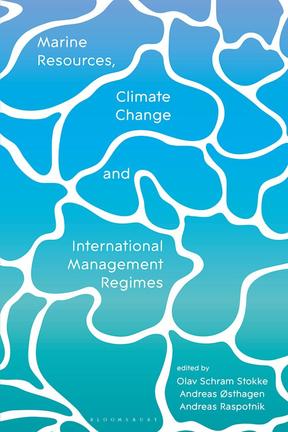Marine Resources, Climate Change and International Management Regimes
Bloomsbury Academic, 2022, 329 s.
Bloomsbury Academic, 2022, 329 s.
 This open access volume examines how international institutions set up to manage marine living resources are adapting to the effects of climate change on the geographic distribution of these resources.
This open access volume examines how international institutions set up to manage marine living resources are adapting to the effects of climate change on the geographic distribution of these resources.
In the Barents Sea, the world's biggest cod stock is expanding north-eastwards, while in the Nordic Seas significant changes in abundance, distribution and migration patterns can be observed in the world's largest stocks for mackerel and herring. In the Antarctic, increasing temperatures and the associated declines in sea ice, ocean acidification and changes in circulation is likely to affect the geographical distribution of krill, the keystone species of Southern Ocean ecosystems. These developments put established international management regimes under pressure.
In this interdisciplinary research volume, world-leading marine biologists, international lawyers and political scientists join efforts to study the resilience of Arctic and Antarctic marine resource management institutions to large-scale shifts of major marine stocks.
